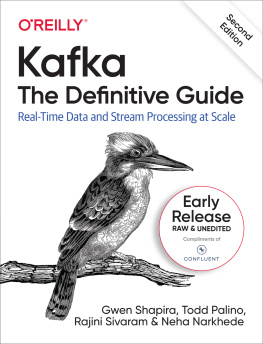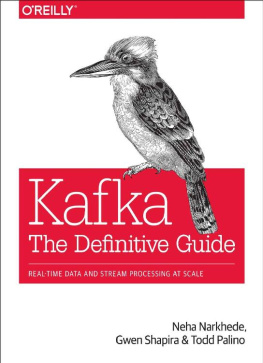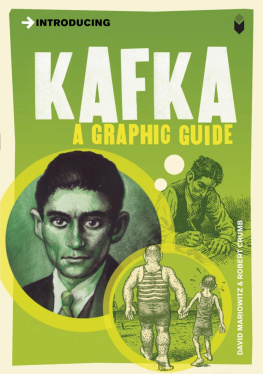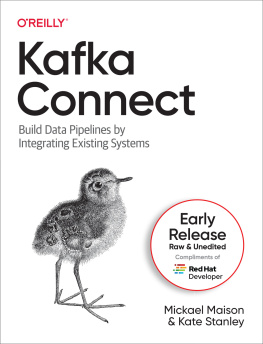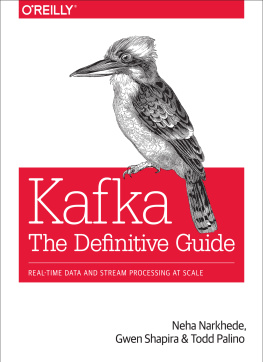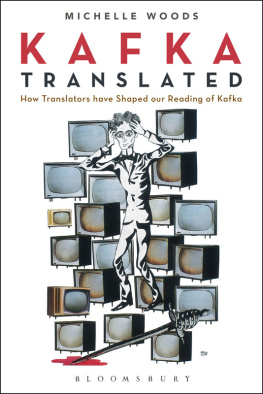Neha Narkhede - Kafka: The Definitive Guide, 2nd Edition
Here you can read online Neha Narkhede - Kafka: The Definitive Guide, 2nd Edition full text of the book (entire story) in english for free. Download pdf and epub, get meaning, cover and reviews about this ebook. year: 2021, publisher: OReilly Media, Inc., genre: Home and family. Description of the work, (preface) as well as reviews are available. Best literature library LitArk.com created for fans of good reading and offers a wide selection of genres:
Romance novel
Science fiction
Adventure
Detective
Science
History
Home and family
Prose
Art
Politics
Computer
Non-fiction
Religion
Business
Children
Humor
Choose a favorite category and find really read worthwhile books. Enjoy immersion in the world of imagination, feel the emotions of the characters or learn something new for yourself, make an fascinating discovery.
- Book:Kafka: The Definitive Guide, 2nd Edition
- Author:
- Publisher:OReilly Media, Inc.
- Genre:
- Year:2021
- Rating:4 / 5
- Favourites:Add to favourites
- Your mark:
- 80
- 1
- 2
- 3
- 4
- 5
Kafka: The Definitive Guide, 2nd Edition: summary, description and annotation
We offer to read an annotation, description, summary or preface (depends on what the author of the book "Kafka: The Definitive Guide, 2nd Edition" wrote himself). If you haven't found the necessary information about the book — write in the comments, we will try to find it.
Kafka: The Definitive Guide, 2nd Edition — read online for free the complete book (whole text) full work
Below is the text of the book, divided by pages. System saving the place of the last page read, allows you to conveniently read the book "Kafka: The Definitive Guide, 2nd Edition" online for free, without having to search again every time where you left off. Put a bookmark, and you can go to the page where you finished reading at any time.
Font size:
Interval:
Bookmark:

by Gwen Shapira , Todd Palino , Rajini Sivaram , and Neha Narkhede
Copyright 2022 Gwen Shapira, Todd Palino, Rajini Sivaram, and Neha Narkhede. All rights reserved.
Printed in the United States of America.
Published by OReilly Media, Inc. , 1005 Gravenstein Highway North, Sebastopol, CA 95472.
OReilly books may be purchased for educational, business, or sales promotional use. Online editions are also available for most titles (http://oreilly.com). For more information, contact our corporate/institutional sales department: 800-998-9938 or corporate@oreilly.com .
- Acquisitions Editor: Jonathan Hassell
- Development Editor: Gary OBrien
- Production Editor: Kate Galloway
- Interior Designer: David Futato
- Cover Designer: Karen Montgomery
- Illustrator: Rebecca Demarest
- October 2021: Second Edition
- 2020-05-22: First Release
See http://oreilly.com/catalog/errata.csp?isbn=9781492043089 for release details.
The OReilly logo is a registered trademark of OReilly Media, Inc. Kafka: The Definitive Guide, the cover image, and related trade dress are trademarks of OReilly Media, Inc.
While the publisher and the authors have used good faith efforts to ensure that the information and instructions contained in this work are accurate, the publisher and the authors disclaim all responsibility for errors or omissions, including without limitation responsibility for damages resulting from the use of or reliance on this work. Use of the information and instructions contained in this work is at your own risk. If any code samples or other technology this work contains or describes is subject to open source licenses or the intellectual property rights of others, it is your responsibility to ensure that your use thereof complies with such licenses and/or rights.
978-1-492-04301-0
With Early Release ebooks, you get books in their earliest formthe authors raw and unedited content as they writeso you can take advantage of these technologies long before the official release of these titles.
This will be the 1st chapter of the final book.
If you have comments about how we might improve the content and/or examples in this book, or if you notice missing material within this chapter, please reach out to the author at .
Every enterprise is powered by data. We take information in, analyze it, manipulate it, and create more as output. Every application creates data, whether it is log messages, metrics, user activity, outgoing messages, or something else. Every byte of data has a story to tell, something of importance that will inform the next thing to be done. In order to know what that is, we need to get the data from where it is created to where it can be analyzed. We see this every day on websites like Amazon, where our clicks on items of interest to us are turned into recommendations that are shown to us a little later.
The faster we can do this, the more agile and responsive our organizations can be. The less effort we spend on moving data around, the more we can focus on the core business at hand. This is why the pipeline is a critical component in the data-driven enterprise. How we move the data becomes nearly as important as the data itself.
Any time scientists disagree, its because we have insufficient data. Then we can agree on what kind of data to get; we get the data; and the data solves the problem. Either Im right, or youre right, or were both wrong. And we move on.
Neil deGrasse Tyson
Before discussing the specifics of Apache Kafka, it is important for us to understand the concept of publish/subscribe messaging and why it is important. Publish/subscribe messaging is a pattern that is characterized by the sender (publisher) of a piece of data (message) not specifically directing it to a receiver. Instead, the publisher classifies the message somehow, and that receiver (subscriber) subscribes to receive certain classes of messages. Pub/sub systems often have a broker, a central point where messages are published, to facilitate this.
.
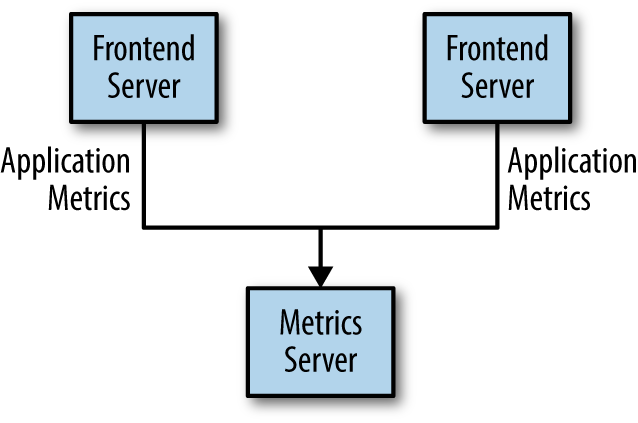
This is a simple solution to a simple problem that works when you are getting started with monitoring. Before long, you decide you would like to analyze your metrics over a longer term, and that doesnt work well in the dashboard. You start a new service that can receive metrics, store them, and analyze them. In order to support this, you modify your application to write metrics to both systems. By now you have three more applications that are generating metrics, and they all make the same connections to these two services. Your coworker thinks it would be a good idea to do active polling of the services for alerting as well, so you add a server on each of the applications to provide metrics on request. After a while, you have more applications that are using those servers to get individual metrics and use them for various purposes. This architecture can look much like , with connections that are even harder to trace.
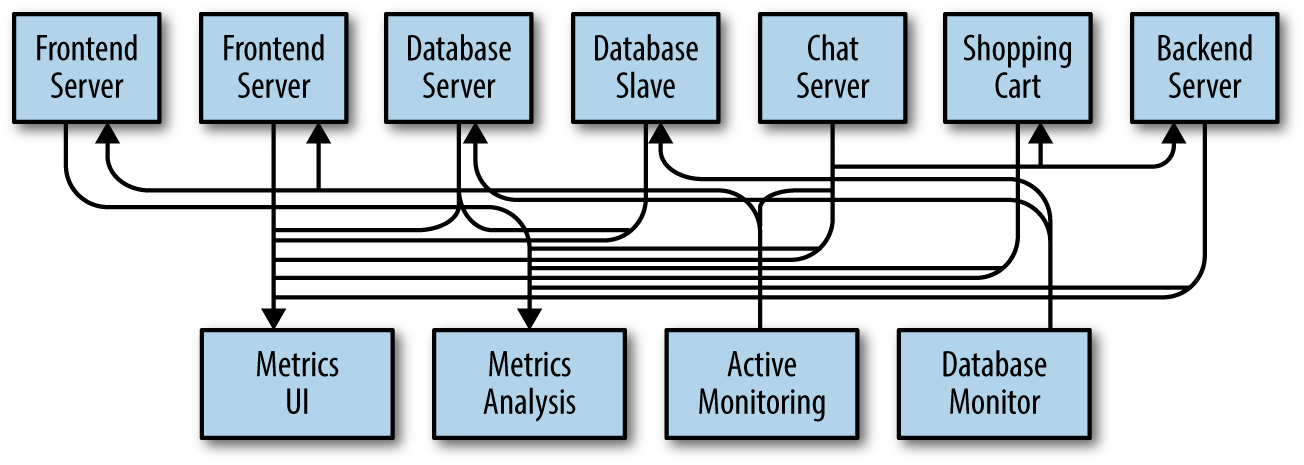
The technical debt built up here is obvious, so you decide to pay some of it back. You set up a single application that receives metrics from all the applications out there, and provide a server to query those metrics for any system that needs them. This reduces the complexity of the architecture to something similar to . Congratulations, you have built a publish-subscribe messaging system!
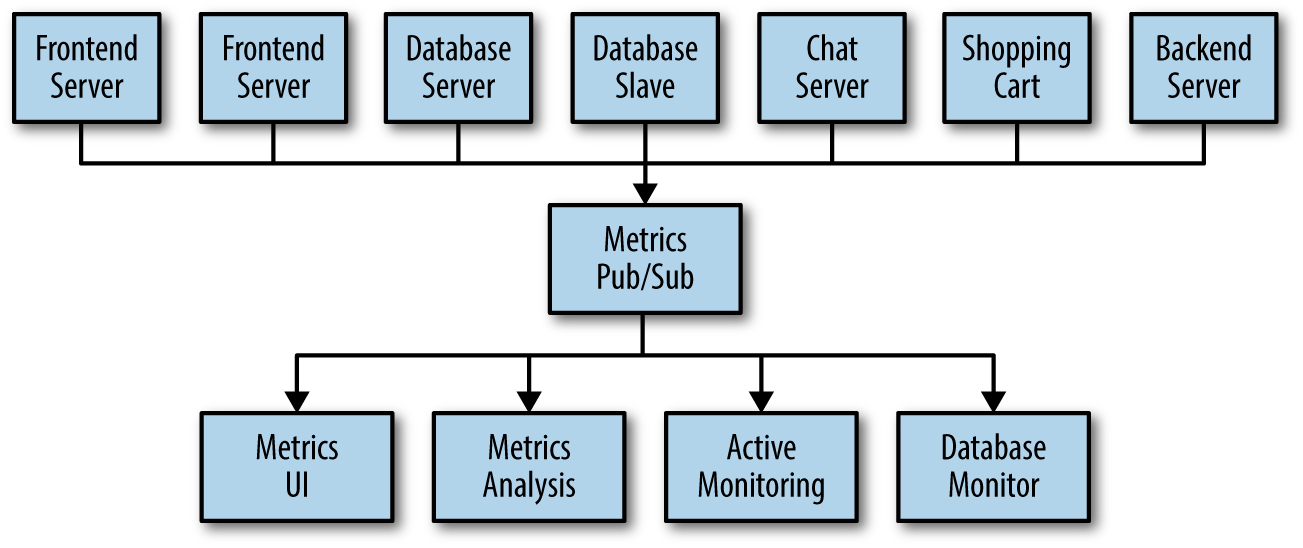
shows such an infrastructure, with three separate pub/sub systems.
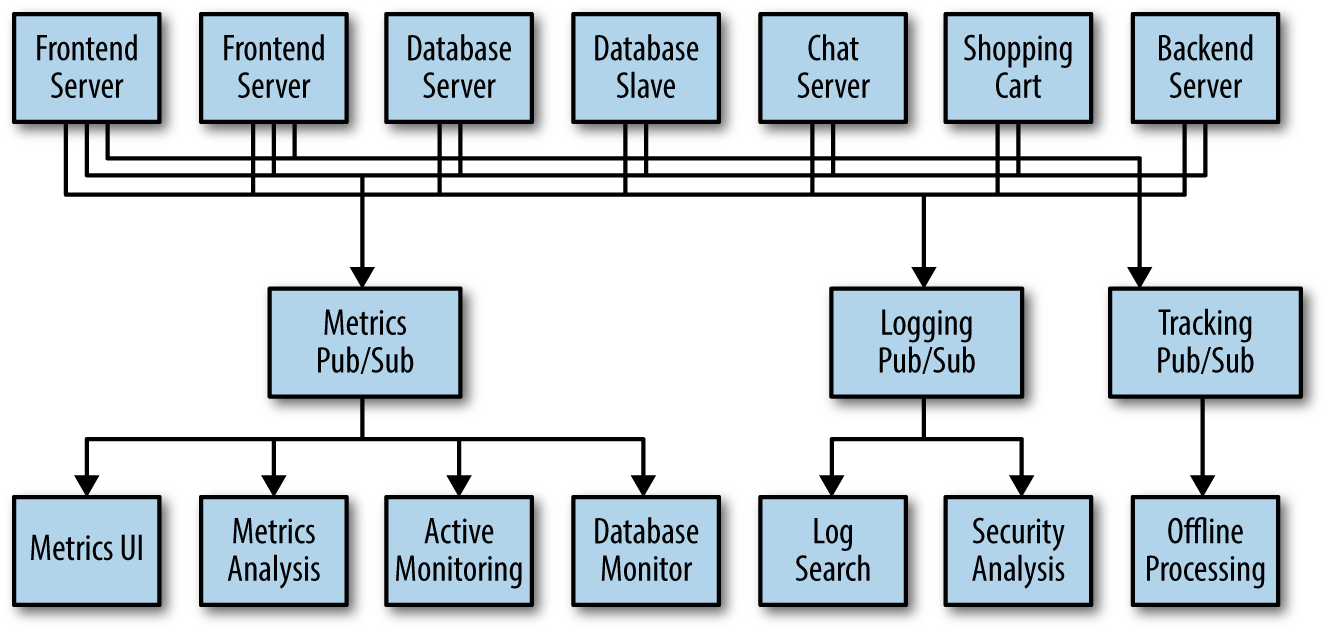
This is certainly a lot better than utilizing point-to-point connections (as in
Apache Kafka is a publish/subscribe messaging system designed to solve this problem. It is often described as a distributed commit log or more recently as a distributing streaming platform. A filesystem or database commit log is designed to provide a durable record of all transactions so that they can be replayed to consistently build the state of a system. Similarly, data within Kafka is stored durably, in order, and can be read deterministically. In addition, the data can be distributed within the system to provide additional protections against failures, as well as significant opportunities for scaling performance.
The unit of data within Kafka is called a
Font size:
Interval:
Bookmark:
Similar books «Kafka: The Definitive Guide, 2nd Edition»
Look at similar books to Kafka: The Definitive Guide, 2nd Edition. We have selected literature similar in name and meaning in the hope of providing readers with more options to find new, interesting, not yet read works.
Discussion, reviews of the book Kafka: The Definitive Guide, 2nd Edition and just readers' own opinions. Leave your comments, write what you think about the work, its meaning or the main characters. Specify what exactly you liked and what you didn't like, and why you think so.

